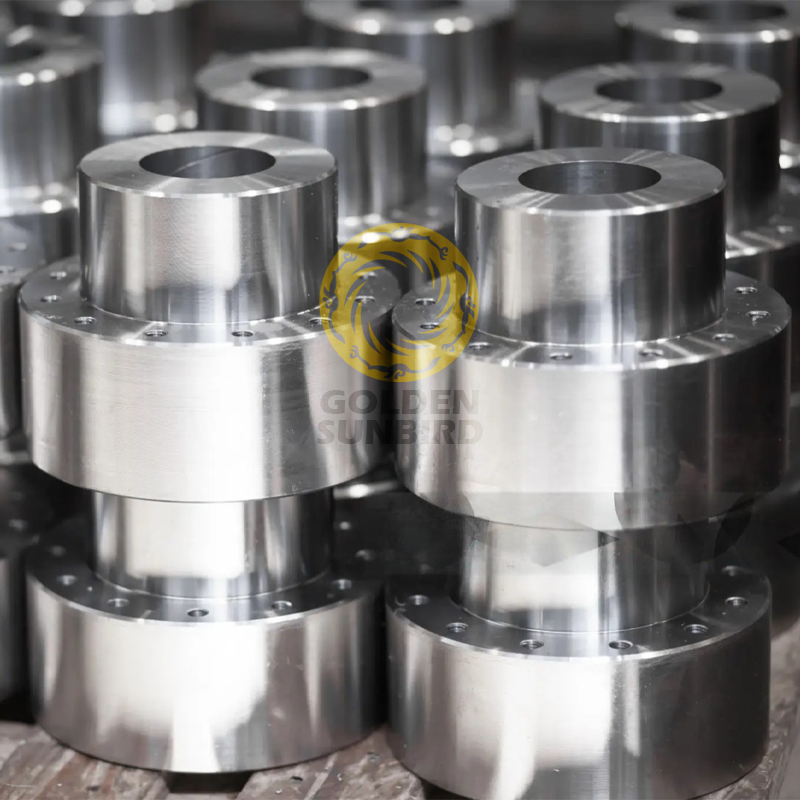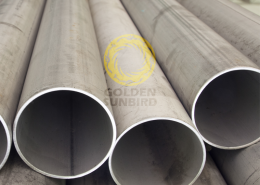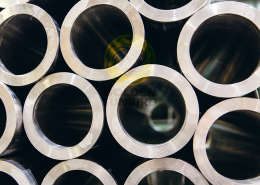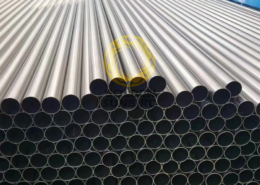ASTM B564 Nickel Alloy Forgings
- UNS N02200, N06686, N10276, N06617, N06600, N06625, N04400, N08800, N08810, N08811, N08825
- Round: 150- 300mm
- Square: 60×60-300x300mm
- Rectangular: 50-200mm x 100 x300mm
- Disc: Dia. 300 – 1500mm
- Rings: Dia. 300 – 1500mm x Height: 20 – 200mm
Features
ASTM B564 Nickel Alloy Forgings
Chemical Composition (wt.%)
| Element | N02200 | N06686 | N10276 | N06617 | N06600 | N06625 | N04400 | N08800 | N08810 | N08811 | N08825 |
|---|---|---|---|---|---|---|---|---|---|---|---|
| Ni | 99.0 min | 50.0-55.0 | Balance | 44.5 min | 72.0 min | 58.0 min | 63.0 min | 30.0-35.0 | 30.0-35.0 | 30.0-35.0 | 38.0-46.0 |
| Cu | 0.25 max | … | … | 0.5 max | 0.5 max | … | 28.0-34.0 | 0.75 max | 0.75 max | 0.75 max | 1.5-3.0 |
| Fe | 0.40 max | 20.0-23.0 | 4.0-7.0 | 3.0 max | 6.0-10.0 | 5.0 max | 2.5 max | Remainder | Remainder | Remainder | 22.0 min |
| Mn | 0.35 max | 0.35 max | 1.0 max | 1.0 max | 1.0 max | 0.5 max | 2.0 max | 1.5 max | 1.5 max | 1.5 max | 1.0 max |
| C | 0.15 max | 0.08 max | 0.01 max | 0.05-0.15 | 0.15 max | 0.10 max | 0.3 max | 0.10 max | 0.05-0.10 | 0.05-0.10 | 0.05 max |
| Si | 0.35 max | 0.08 max | 0.08 max | 1.0 max | 0.5 max | 0.5 max | 0.5 max | 1.0 max | 1.0 max | 1.0 max | 0.5 max |
| S | 0.01 max | 0.02 max | 0.03 max | 0.015 max | 0.015 max | 0.015 max | 0.024 max | 0.015 max | 0.015 max | 0.015 max | 0.03 max |
| Cr | … | 19.0-23.0 | 14.5-16.5 | 20.0-24.0 | 14.0-17.0 | 20.0-23.0 | … | 19.0-23.0 | 19.0-23.0 | 19.0-23.0 | 19.5-23.5 |
| Mo | … | 1.0-1.75 | 15.0-17.0 | 8.0-10.0 | … | 8.0-10.0 | … | … | … | … | 2.5-3.5 |
Mechanical Properties (Annealed Condition)
| Property | N02200 | N06686 | N10276 | N06617 | N06600 | N06625 | N04400 | N08800 | N08810 | N08811 | N08825 |
|---|---|---|---|---|---|---|---|---|---|---|---|
| Tensile Strength (ksi) | 55-75 | 100-110 | 100-115 | 105-135 | 80-100 | 100-150 | 70-85 | 75-100 | 85-115 | 85-115 | 85-100 |
| Yield Strength(0.2% Offset, ksi) | 15-25 | 40-45 | 41-50 | 65-85 | 35-45 | 60-110 | 28-50 | 30-60 | 35-65 | 35-65 | 30-60 |
| Elongation (%) | 55-35 | 30-20 | 40-30 | 30-20 | 30-40 | 30-42 | 35-40 | 30-35 | 30-45 | 30-45 | 30-40 |
Technical Specifications
| Specification | Value |
| Standard | ASTM B564 Nickel Alloy Forgings |
| Grade | UNS N02200 (Nickel 200), N06686, N10276 (Hastelloy C276), N06617 (Inconel 617), N06600 (Inconel 600), N06625 (Inconel 625), N04400 (Monel 400), N08800 (Incoloy 800), N08810 (Incoloy 800H), N08811 (Incoloy 800HT), N08825 (Incoloy 825) |
| Corrosion Resistance | Excellent |
| Type of Bars | Forged |
| Shape of Bars | Round Bar, Square Bar, Rectangular Bar, Disc, Rings |
| Density | 8.17g/cm³ |
| Dimension | Round: 150- 300mm Square: 60×60-300x300mm Rectangular: 50-200mm x 100 x300mm Disc: Dia. 300 – 1500mm Rings: Dia. 300 – 1500mm x Height: 20 – 200mm |
| Inspection Certificate | EN 10204 Type 3.1 (Mill Test Certificate), EN 10204 Type 3.2 (Witness Testing or 3rd Party Inspection) |
| Test Methods | Chemical analysis ASTM E76, E350, E1473; Tensile Test ASTM E8; Rounding Procedure ASTM E29; Grain Size ASTM E112, UT/ET |
Packing
Small diameter packed in plywood box; large diameter packed on plywood pallets.
Application
Reactors and Vessels: The corrosion-resistant properties of nickel alloy forgings make them ideal for reactors and vessels in chemical processing plants, especially those handling corrosive substances.
Pipes and Fittings: For transporting corrosive chemicals, pipes, and fittings forged from nickel alloys offer durability and resistance to chemical attack.
Engine Components: High-temperature strength and corrosion resistance are critical for parts within aerospace engines, where materials are subjected to extreme heat and corrosive environments.
Landing Gear: Certain nickel alloys’ high strength-to-weight ratio makes them suitable for critical structural components like landing gear.
Offshore Platforms: Materials used in offshore platforms must withstand harsh marine environments; nickel alloy forgings offer excellent corrosion resistance to seawater.
Valves and Pumps: For controlling the flow of oil and gas, especially under high pressure and corrosive conditions, nickel alloy forgings provide the necessary strength and corrosion resistance.
Turbine Components: Wind turbines use Nickel alloy forgings for power generation because they can withstand high temperatures and pressures.
Nuclear Reactors: Certain nickel alloys are designed to withstand the corrosive effects of atomic reactor coolants and the intense radiation environment.
Propulsion Systems: Nickel alloys’ resistance to corrosion by seawater makes them suitable for components in marine propulsion systems, such as propeller shafts.
Desalination Plants: Nickel alloys are used in desalination plants for parts that come into contact with corrosive seawater.
Pollution Control Equipment: Nickel alloy forgings are used in equipment designed to control air pollution, including flue-gas desulfurization systems.
Waste Treatment: The resistance of nickel alloys to a wide range of chemicals makes them suitable for waste treatment and handling equipment.
Heat Exchangers: The high thermal stability of nickel alloys is ideal for heat exchangers in petrochemical plants.
Pressure Vessels: Nickel alloy forgings can withstand the high pressures and corrosive materials encountered in petrochemical processes.








